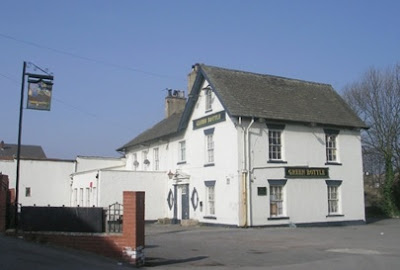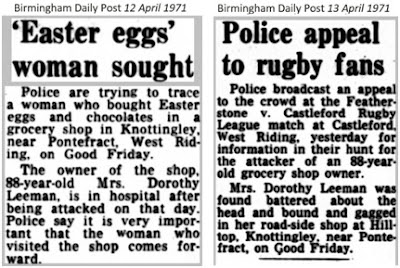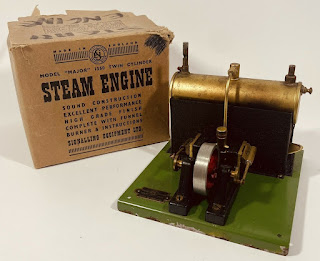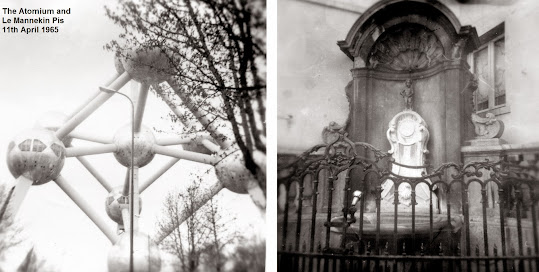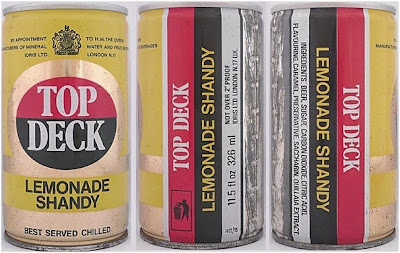Did you have a part-time job while at school, such as a newspaper round or in a shop?
My wife had both. She took over her brother’s paper round at 14, and was so reliable they promoted her to the slightly better-paid job of ‘marking up’. That meant being in at 6 a.m., 7 days a week, to unpack the newspapers and magazines from the suppliers, and sort them into bundles by house number and paper round. There were 8 rounds of about 30 houses each. It was complicated by the weekly and monthly magazines: The Radio Times, The TV Times, the local weekly newspaper, Weekend, Woman’s Own, The People’s Friend, The Lady, Jackie, Amateur Photographer, The Beano, and more. The Sunday papers with their multiple sections and colour supplements were particularly heavy and troublesome. At least it was warm in the newspaper shed. She did it for about three years. I doubt I could have stuck it at all. It was hard enough getting out of bed in time for school.
Later, in the sixth form, she had a Saturday job in a book shop, sorting and tidying shelves, serving customers and dealing with orders, which included checking the microfiche for books in print and available. That’s what happens to the able and competent. They get more responsibility.
I never had a regular job, but sometimes stood in for friends when they were away. Two I remember especially.
 |
| A similar off-licence to where I worked |
One was my friend Gilbert’s Saturday morning job at an off-licence. The owner was getting on a bit, and could no longer lift and move the heavy beer crates. The shop was at the end of a terrace on the corner of a side-street, with a step up to the front door, and a secure brick store for stock at the rear.
You loaded the crates of empty bottles inside the shop on to a two-wheeled sack barrow (hand truck) and wheeled then down the step and along the sides street to the stock shed. There were usually around 10 crates of empties because in those days glass bottles carried refundable deposits of a few pence each.
Then, the owner identified what he needed to re-stock the shop.
“I’ll have two of these and these, and three of those, and two of those, and one of those,” he would say, pointing at crates of Hull Brewery bitter, Magnet pale ale, Carlsberg lager, Bass stout, and so on. You stacked them ready to wheel round to the shop, and took them load by load along the side street.
That was tricky. The full bottles were heavy, and the pavement bumpy and uneven. If you picked the wrong path you would come to a dead stop, and it was difficult to get moving again. Gilbert did it for so long, he reckoned he could draw every slab and crack from memory.
Once you reached the front, you wheeled the crates up the step into the shop, and re-loaded with more crates of empties to return to the store.
“Never drink anything left in the bottles,” the owner repeatedly warned. “You don’t know what it is. People spit and pee in them.”
If you were trusted, you were asked to take the week’s takings to the bank on your bike. The bank notes, cash, cheques, and paying-in slips were all in a leather pouch, which you handed to the bank clerk to open and process, and then returned with the completed paying-in book. Very easy, but it did strike me I was riding through town with hundreds of pounds in my pocket: perhaps the equivalent of up to £10,000 today.
“Don’t get nobbled, will you,” the owner always said when you set off.
 |
| Front Page and Articles in The Sheffield Green’Un of 29th August 1970 |
The other memorable job was after I had learnt to drive. Dudule did it on his motorbike, and I was one of the few who could help out by borrowing my parents’ car. It involved collecting newspapers from the railway station on a Saturday evening, and delivering them to shops in the villages of Old Goole, Swinefleet, Reedness, and Whitgift, which was 6 miles away.
Each Saturday evening the presses of the Hull Daily Mail printed a sports newspaper known as “The Green 'Un”, listing the day’s football and racing results with local match reports. Much of it consisted of pre-prepared articles, but for the rest, considering that games did not finish until nearly 5 o'clock, it seemed incredible they could compile and print a newspaper, and have it on the train to arrive 25 miles away by 7. The wholesaler at the station divided the papers into labelled bundles, and you were on your way. I enjoyed that job the few times I stood in.
However, our school did not approve of part-time work. You could just about get away with a Saturday job so long as you were not daft enough to get a detention, or be selected for one of the sports teams. Jobs during the week were another matter.
One lad, whose dad had a butcher’s shop, was out after school every day delivering meat on the butcher’s bike (basket on front, metal sign hanging from crossbar). He had some amusing stories, such as falling off and spilling meat across the road. He simply picked it up, wrapped it up again, and delivered it as if nothing was wrong.
It had to end when he was spotted delivering meat in his school uniform, and the traditionalist, old-school headmaster, who had been there since 1936, asked to see his dad. It was inappropriate for a Grammar School boy to be engaged in such activities after school, he told him. It would affect his homework, and if he wanted to deliver meat he should leave so his place could go to someone who would make more of the opportunities.
What head teacher would dare say such a thing now? And as for newspaper rounds, microfishe, deposits on bottles, cracked and uneven pavements, cash takings and paying-in slips, Green 'Uns, butchers’ bikes, meat deliveries, ... all disappeared, or just about. And it barely scratches the surface. There were also holiday jobs: I worked in a canning factory and my brother was a gardener at the cemetery in which he now lies. They did things differently then. England in the 1960s.







